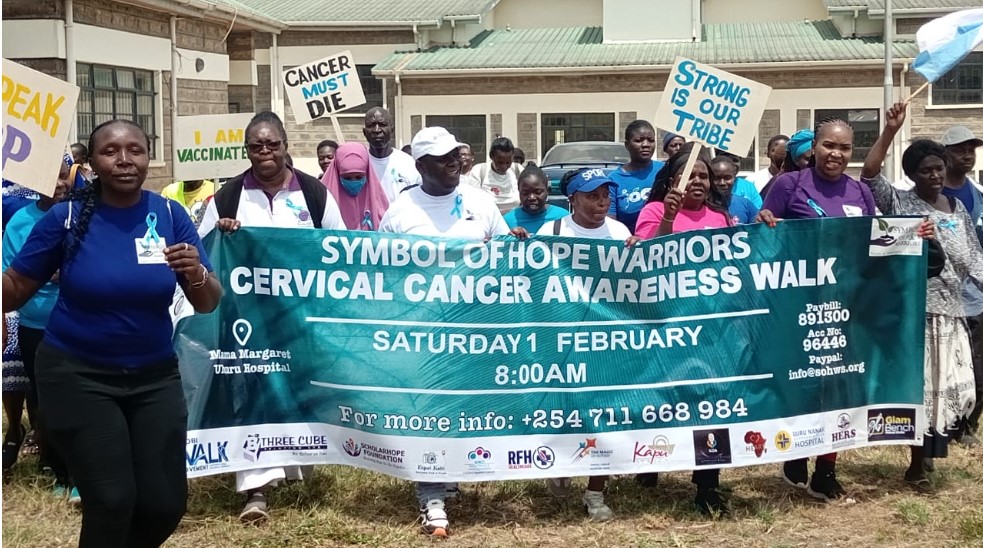WHO warns of rising premature deaths from chronic diseases in global health wake-up call

According to WHO, the rise in premature deaths is being driven by population growth and ageing, with these chronic diseases now accounting for the majority of deaths among those under 70.
Millions of people under the age of 70 are now dying from non-communicable diseases such as heart disease, stroke, cancer and diabetes, a new report by the World Health Organisation (WHO) has revealed, warning that global health progress is under serious threat.
According to WHO, the rise in premature deaths is being driven by population growth and ageing, with these chronic diseases now accounting for the majority of deaths among those under 70.
More To Read
- Six foods you should include in your diet if you are diabetic
- Born too soon: The crisis of premature births in Kenya
- Expert tips on how to cope with diabetic foot pain
- Medics in Wajir raise alarm over rising cases of kidney failure in the region
- Mothers' battle for survival when diabetes complicates pregnancy
- The link between diabetes, kidney disease and high blood pressure
“Premature deaths from NCDs, such as heart disease, stroke, diabetes, and cancer, are rising, driven by population growth and ageing, and now account for most deaths among people under the age of 70, worldwide,” reads the report.
The WHO’s World Health Statistics 2025 report found that the global community is still far off track in its efforts to reduce premature deaths from non-communicable diseases by one-third by the year 2030, a key Sustainable Development Goal.
“The world is currently off track to reduce NCD premature mortality by one-third by 2030,” reads the report.
The health agency also linked the recent surge in deaths to the aftermath of the COVID-19 pandemic, which significantly affected global life expectancy and well-being.
“In just two years, between 2019 and 2021, global life expectancy fell by 1.8 years—the largest drop in recent history—reversing a decade of health gains,” the report stated.
“Increased levels of anxiety and depression linked to COVID-19 reduced global healthy life expectancy by 6 weeks—erasing most of the gains made from lower mortality due to noncommunicable diseases (NCDs) during the same period.”
The report also highlighted that while some health gains had been made, especially in healthier living habits, global progress remains uneven. WHO said an estimated 1.4 billion more people were living healthier lives by the end of 2024, surpassing its one billion target.
The achievement was attributed to reduced tobacco use, better air quality and improved access to water, hygiene and sanitation.
Global alcohol consumption also declined from 5.7 to 5.0 litres per capita between 2010 and 2022, while tobacco use continued to fall. However, WHO warned that air pollution remains one of the top causes of preventable deaths globally, and the ongoing burden of poor mental health continues to stall broader progress.
“Behind every data point is a person, a child who didn’t reach their fifth birthday, a mother lost in childbirth, a life cut short by a preventable disease,” WHO Director General Dr Tedros Adhanom Ghebreyesus said.
“These are avoidable tragedies. They point to critical gaps in access, protection, and investment, especially for women and girls. Health progress is slowing. Every government has a responsibility to act, with urgency, commitment, and accountability to the people they serve.”
The WHO raised the alarm over the continued disruption in international aid, warning that it threatens to destabilise progress, especially in countries with the highest health care needs. The report cautioned that recovery in essential health services remains incomplete and pointed to a severe shortage of skilled health workers.
A global shortfall of 11.1 million health workers is projected by 2030, with nearly 70 per cent of that gap concentrated in the WHO African and Eastern Mediterranean regions.
“Strong health systems rely on strong health information. Timely, trusted data drives better decisions and faster results,” WHO Unit Head for Health Data and Analytics Dr Haidong Wang said.
“WHO is supporting countries through the SCORE strategy to strengthen health information systems, and through the World Health Data Hub, which is helping to standardise, improve, and unlock the value of data across countries and systems.”
The report further revealed mixed progress toward the WHO’s Triple Billion targets. Although 1.4 billion more people were living healthier lives by the end of 2024, progress in other key areas remained sluggish. Only 431 million more people gained access to essential health services without financial hardship, and 637 million more people were better protected from health emergencies.
Maternal and child deaths are also not declining fast enough to meet global goals. The slowdown in progress, according to the WHO, comes after two decades of substantial gains: between 2000 and 2023, maternal deaths dropped by over 40 per cent and child deaths under five more than halved.
“Progress has stalled, putting millions of lives at risk. Without urgent course correction to meet the 2030 targets, the world risks losing the chance to prevent an additional 700,000 maternal deaths and 8 million under-5 deaths between 2024 and 2030,” reads the report.
While incidence rates of HIV and tuberculosis are falling, malaria has resurged since 2015. Antimicrobial resistance remains a critical public health threat. Vaccination coverage for children, including the third dose of the diphtheria-pertussis-tetanus (DTP3) vaccine, had also not returned to pre-pandemic levels by 2023.
The WHO report also pointed out that many countries continue to lag in tackling foundational health risks, such as malnutrition, air pollution and unsafe living conditions.
The organisation called for sustained and predictable funding, both domestic and international, to preserve hard-won gains and confront emerging health threats.
“This report shows that the world is failing its health checkup. But countries have shown that rapid progress is possible,” WHO Assistant Director General for Data, Analytics and Delivery for Impact Dr Samira Asma, said.
“Together, we can achieve a world where data is timelier and more accurate, programmes improve continuously, and premature deaths become rare. With speed, scale, and smart investments, every country can deliver measurable gains.”
Top Stories Today







































